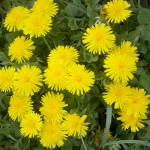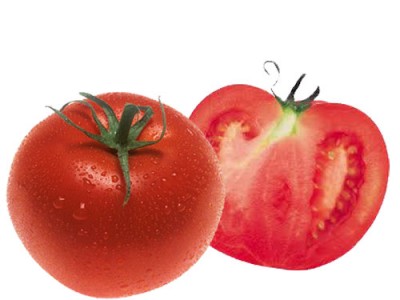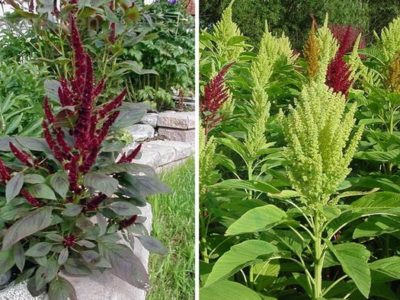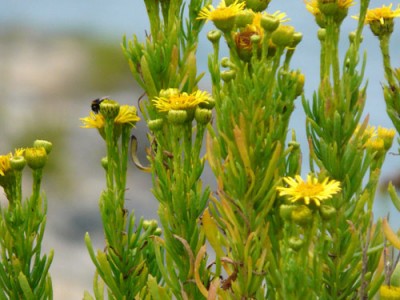
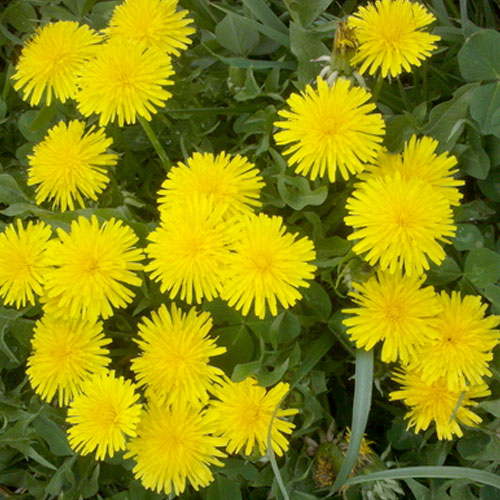
Dandelion Unknown Health Benefits
Dandelion
Plants live wonderfully in this world and leaves behind positive imprints on the earth. Unlike a human being the plants live a wholesome life and grow together with their family till they depart from this earth. Human beings have to learn so many things from the nature and enhance his wisdom. This topic will deal with a plant named common dandelion which has numerous florets in its flowers. The botanical name of this plant is Taraxacum officinale. This ornamental plant’s flower will look extremely beautiful when it grows in full swing. The normal color of the flowers is yellow. These yellow flowers at one point of time will turn into fruits that disperse in the wind called “blow balls” or “clocks“.
Cultivation Method
- The dandelion grows from generally unbranched taproots and products numerous stems that grow up to 70 cm tall.
- The flowers will be dangling at the top and are held taller than the foliage.
- The healthy green foliage may be upright-growing or horizontally spreading, the leaves that are either unwinged.
- The color of the stem is tinted purplish and stands upright. Only one flower blooms in each flowering stem which is a unique aspect of this plant.
- All the florets found in the flowers are ligulate and bisexual.
- The leaves are 5-45 cm long and 1-10 cm wide and forms in many shapes.
- The count of the florets will vary from 40 to 100.
- The cup shaped bracts that hold the florets are composed of 12 to 28 segments.
- The other common name of this plant is wandering dandelion.
Properties
Some researchers recognize that there are three subspecies of officinale. They are Taraxacum certophorum, Taraxacum officinale, Taraxacum vulgare. These weeds grow vigorously and are found abundantly in Europe’s central and northern regions. The color of the fruits is olive-green or olive-brown and 2-3 mm long. The fruits have 4 to 12 ribs that have sharp edges. The pappi which forms the parachutes are white to silver-white color and around 6 mm wide.
Dandelions generally have 25 to 40 pairs of chromosomes, but some plants have lesser chromosomes. These plants are native to Europe and Asia and are now naturalized in many parts of the world. Since these weeds grow at amazing speed these plants are considered a nuisance in recreational places of America. This species are prolific seed producer with 54 to 172 seeds produced per head.
It is imperative to note that a single plant can produce more than 5000 seeds in a year. So when someone plants these seeds on a piece of land (per hectare) they can reap more than 97,000,000 seeds in a year. These seeds generally spread by the wind. These plants grow wonderfully in any types of soils.
| Nutrients | Nutrition Value | % DV of RDA |
|---|---|---|
| Energy | 45 Kcal | 2% |
| Carbohydrates | 9.20 g | 7% |
| Protein | 2.70 g | 5% |
| Total Fat | 0.70 g | 3% |
| Cholesterol | 0 mg | 0% |
| Dietary Fiber | 3.50 g | 9% |
| Vitamins | ||
| Folates | 27 µg | 7% |
| Niacin | 0.806 mg | 5% |
| Pantothenic acid | 0.084 mg | 1.50% |
| Pyridoxine | 0.251 mg | 19% |
| Riboflavin | 0.260 mg | 20% |
| Thiamin | 0.190 mg | 17% |
| Vitamin A | 10161 IU | 338% |
| Vitamin C | 35 mg | 58% |
| Vitamin E | 3.44 mg | 23% |
| Vitamin K | 778.4 µg | 649% |
| Electrolytes | ||
| Sodium | 76 mg | 5% |
| Potassium | 397 mg | 8% |
| Minerals | ||
| Calcium | 187 mg | 19% |
| Iron | 3.10 mg | 39% |
| Magnesium | 36 mg | 9% |
| Manganese | 0.342 mg | 15% |
| Phosphorus | 66 mg | 9% |
| Selenium | 0.5 mg | 1% |
| Zinc | 0.41 mg | 4% |
| Phyto-nutrients | ||
| Carotene-α | 363 µg | — |
| Carotene-ß | 5854 µg | — |
| Crypto-xanthin-ß | 121 µg | — |
| Lutein-zeaxanthin | 13610 µg | — |
Health Benefits and Its Uses
- These plants are consumed as a food and as medicinal herbs since they are rich in medicinal properties.
- The flowers are used for making wine and greens are used in food items especially in salads.
- The leaves are extremely rich in beta-carotene, vitamin c and iron.
- These plants carry more iron and calcium than spinach leaves.
- These plants contain no toxicity and can be consumed without any supervision.
- The Americans, Europeans and Chinese use these as herbs for treating many diseases like digestive disorders.
- These plants when consumed regularly will improve liver function and bile formation.

